

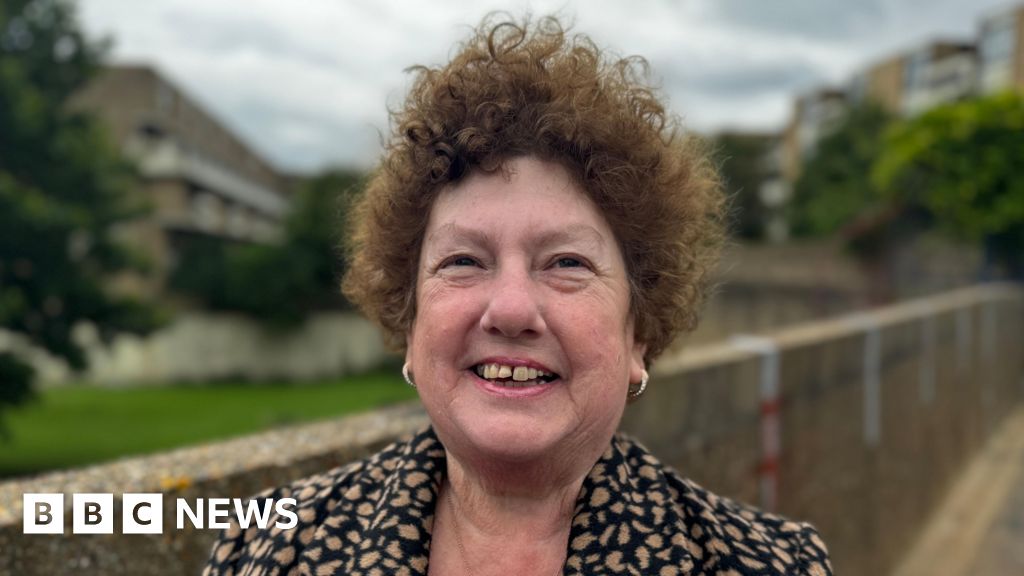
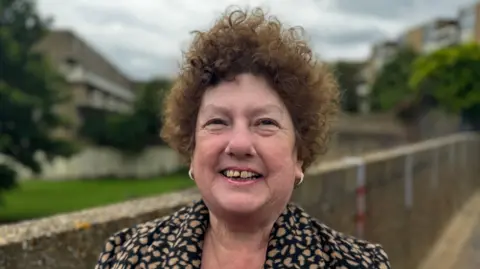 BBC
BBCA woman who ran a social club which became the heart of a newly built town’s community has reflected on its past.
Denise Graham helped to set up the Usworth Working Men’s Club in Washington, affectionately known as The Top Club, as a place for new locals to meet.
The metropolis, made up of 18 villages with additional homes, shops and factories, was designated a new town on 24 July 1964.
Ms Graham, who relocated to Washington from Sunderland, said of the venue: “It was a really good club, you’d have to queue up for hours outside.”
Moving to a new town, when it was still in its infancy and communities were still being established, was daunting but exciting for many young families.
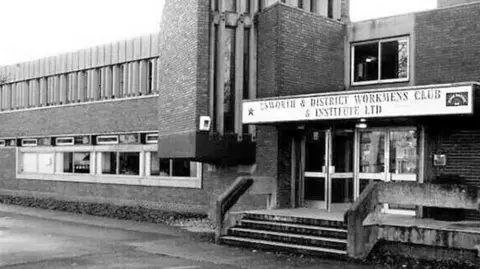 Raggy Spelk
Raggy SpelkPeople had come from other parts of the region, including Gateshead, Sunderland and Durham, to find housing and new opportunities.
Some lived in their own homes, while others lived in the brutalist-style Waterloo Walk apartment block, also called Marlborough Park.
But the club, which still exists as a community centre, became the place for new residents to get to know their neighbours, Ms Graham told the BBC.
She said: “It was a big club, it was always packed.”
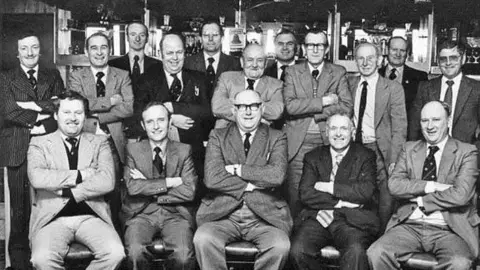 Raggy Spelk
Raggy SpelkThe venue had succeeded the former Usworth and District Working Mens club on Station Road, which was founded in the early 1900s.
A newspaper article at the time revealed the new Top Club would relocate to a building costing £100,000; about £2m in today’s money.
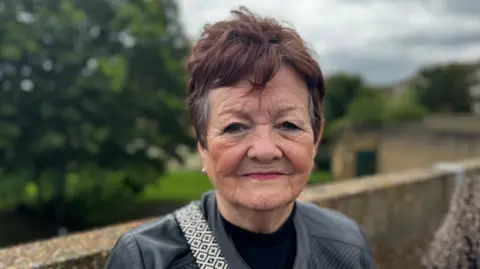
The new social club was the the place to be on a weekend and a venue where “everybody was friendly”, resident Gladys Dorman remembered.
She had grown up near Usworth Colliery, where her father worked, before moving to Waterloo Walk in 1969.
But a comforting, warm welcome was not felt by all.
Some who worked for the body responsible for developing the town recalled being jeered if they stepped foot into the club.
Ex-Washington Development Corporation worker Robert Hope said there was resentment from original residents who had witnessed the coincidental decline of the area’s collieries as the new town was built.
“They’d ask where are you from and I’d say ‘the development corporation’ and you’d get the whole mouthful,” he remembers.
“But I think they came to terms with [the new town].”
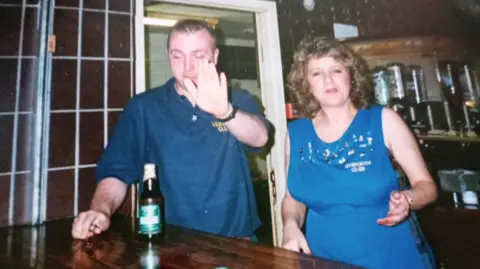 Handout
HandoutAlthough it no longer exists in its original guise, for Ms Graham the legacy of the club follows her decades after giving up the role.
She said: “I was even on holiday and somebody shouted ‘hey you with the curly hair, do you live in Washington? I recognise you’.
“I thought, ‘aye, I can’t get away with nothing’.”